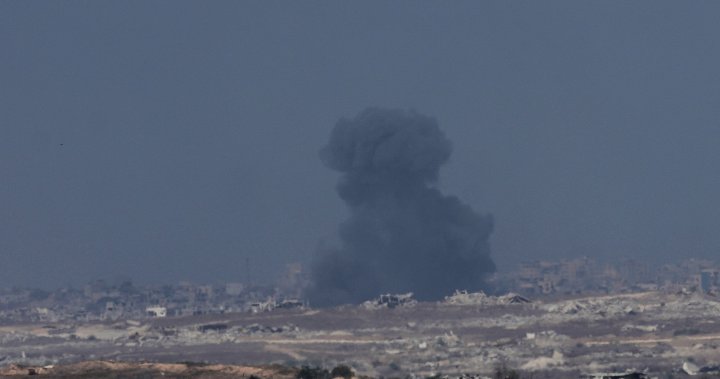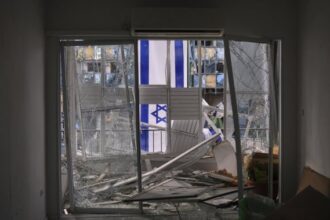In a pivotal development amid the ongoing Gaza conflict, Israeli and Qatari negotiators have reestablished direct diplomatic channels this week, marking the first high-level contact between the two nations in nearly three months. This renewed dialogue comes as humanitarian conditions in Gaza continue to deteriorate, with civilian casualties mounting daily.
The breakthrough occurred when David Barnea, chief of Israel’s Mossad intelligence agency, met with Qatari Prime Minister Mohammed bin Abdulrahman Al Thani in Doha on Monday. According to sources familiar with the discussions, the talks centered on reviving stalled hostage release negotiations and establishing a sustainable ceasefire framework in Gaza.
“These discussions represent a critical window of opportunity,” said Dr. Nadia Ibrahim, Middle East policy analyst at the International Crisis Group. “Both sides recognize that diplomatic solutions are the only viable path forward, especially as humanitarian conditions reach catastrophic levels.”
The timing of these renewed negotiations coincides with alarming reports from Gaza’s Health Ministry, which documented over 100 Palestinian deaths in just 24 hours earlier this week. Since October 7, the death toll has exceeded 36,000, with thousands more injured and displaced. The United Nations has repeatedly warned of “unprecedented humanitarian suffering” throughout the enclave.
Qatar’s mediating role has proven instrumental since the conflict began last October. As host to several Hamas political leaders, Doha maintains unique communication channels with both Israeli authorities and Palestinian factions. This diplomatic positioning enabled Qatar to facilitate the November hostage-prisoner exchange that temporarily paused hostilities.
“Qatar occupies a rare diplomatic space,” explained Canadian foreign policy expert Marcus Chen in an interview with CO24 World News. “Few nations can engage credibly with all parties in this conflict, making Doha’s involvement essential to any lasting resolution.”
The talks face significant challenges, however. Israeli Prime Minister Benjamin Netanyahu has publicly maintained a hard line, emphasizing the military objective of dismantling Hamas. Meanwhile, families of Israeli hostages have intensified pressure on the government, staging demonstrations in Tel Aviv demanding prioritization of prisoner exchanges over continued military operations.
Economic considerations also loom large over these negotiations. The World Bank estimates Gaza’s reconstruction costs at upwards of $15 billion, with regional economic impacts spreading throughout the Middle East. Canadian companies with Middle Eastern investments are closely monitoring these developments, according to recent CO24 Business analysis.
International pressure for a resolution continues to build. Canada has joined the chorus of nations calling for an immediate ceasefire and unimpeded humanitarian aid access. Foreign Affairs Minister Mélanie Joly reiterated this position during her recent address at the United Nations, emphasizing Canada’s commitment to a two-state solution as the only viable path to lasting peace in the region.
As these crucial negotiations unfold, the question remains whether diplomacy can overcome deeply entrenched positions and historical grievances to end the suffering of civilians caught in the crossfire. Can these renewed talks between Israel and Qatar finally produce the breakthrough needed to halt the devastating humanitarian crisis in Gaza?










